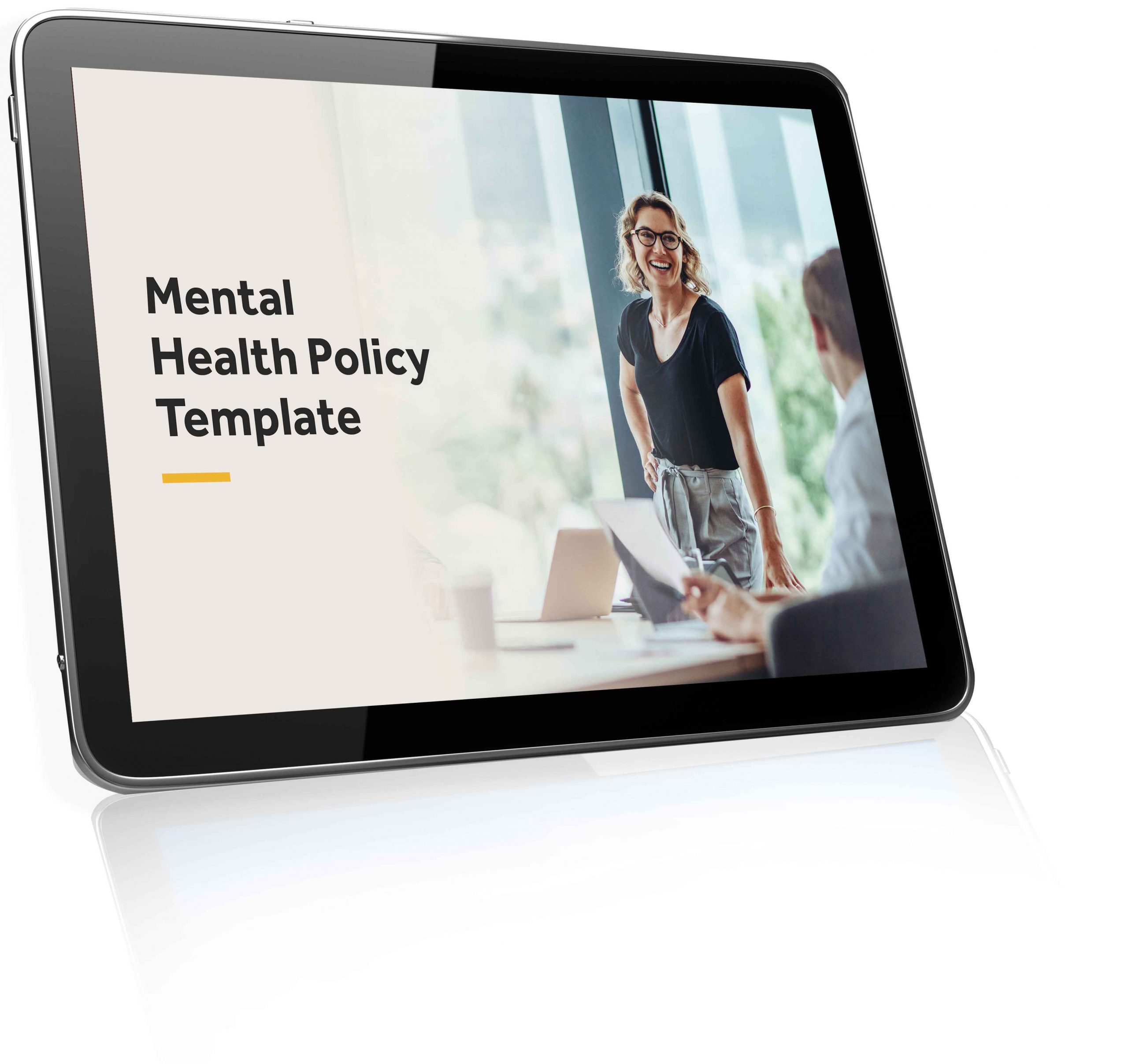
From the moment we wake up and check our phone notifications, to the moment we drift off to sleep in front of Netflix, most of us are “plugged in” to tech all day long.
Unsurprisingly, our reliance on tech extends into the workplace. The Australian National Skills Commision has 600 core job classifications and over 75% of them involve day-to-day uses of tech.
The detrimental effects of tech on mental health have come under intense scrutiny in recent years. From gaming addiction and social media comparison, to hate speech and dwindling in-person relationships, tech tends to be characterised as the arch-villain of modern-day mental health.
Is there another side to the story?
Let’s explore how tech innovations are being used to make mental healthcare more accessible, affordable, and engaging. For employers supporting the well-being of multiple employees, many of whom may work online, the possibilities have the potential to be transformative.
Is it possible that your team could connect with a wealth of well-being resources and debug their mental health in just a few clicks?
How tech helps with mental health
Tech has made it easier than ever to access mental healthcare services. There are now countless online and mobile-based platforms offering affordable and convenient mental healthcare.
Face-to-face therapy in Australia can be very expensive, while a subscription to an online therapy platform can often be purchased for a fraction of the cost. The service is anything but “cookie cutter”, offering all kinds of customised support, from tailored CBT programs to one-on-one video therapy sessions.
When it comes to practising self-care, tech can supercharge our efforts. There are apps and websites that can help people track their moods, monitor sleep patterns, manage stress, and learn relaxation techniques.

Is your business’s mental health policy compliant?
Employers have an obligation to provide a mentally healthy workplace for everybody. Our FREE template is suitable for most businesses, helping you create a policy that protects your staff and business.
The latest mental health software solutions
Mental healthcare tech has come a long way since the emergence of telehealth, with a range of groundbreaking software released in recent years:
Pear Therapeutics is a digital therapeutics company that develops prescription software applications to treat a variety of mental health conditions, including depression, anxiety, PTSD, and substance use disorders. Their platform uses a range of innovative features for a more immersive therapy experience, such as virtual reality, gamification, and artificial intelligence. to help patients learn new skills and overcome their challenges.
Wysa is a mental health chatbot that uses artificial intelligence to provide emotional support and guidance to users. Wysa can be used to manage stress, burnout, anxiety, depression, and other mental health conditions. It uses machine learning to develop a deeper understanding of the user’s issues, providing advice tailored to their needs.
Happify is a mental health app that uses gamification and cognitive behavioral therapy (CBT) to help users improve their mood, resilience, and overall well-being. Happify offers a variety of interactive activities and games that help users develop positive thinking patterns and healthy coping skills.
Ellipsis is a groundbreaking software platform that can be used to monitor a person’s mental health remotely. It uses AI to analyse a person’s voice and speech patterns for signs of emotional distress. Ellipsis can be used by clinicians to track their patients’ progress over time, or by individuals to monitor their own mental health.
Headspace is a mobile app that offers guided meditations and mindfulness exercises. Fusing ancient mindfulness techniques with the latest tech, Headspace allows users to reshape their daily routines to promote a state of presence, inner peace and mental well-being.
How can employers use tech?
The latest mental health software can be a valuable tool for employers who are looking to support the well-being of their staff. These software programs offer a variety of practical features:
Self-assessments: Many mental health software programs offer self-assessments that can help employees to identify any potential mental health problems. These assessments can also be used to track progress over time.
Education and resources: Mental health software programs often provide employees with self-serve access to educational resources on a variety of mental health topics. These resources can help employees to learn more about mental health and to develop coping mechanisms for dealing with stress and other mental health challenges.
Support groups and forums: Some mental health software programs offer employees access to online support groups and forums. These groups can provide a safe space for employees to connect with others who are struggling with similar mental health problems and to get support from people in the same boat.
Therapy and counseling: Many mental health software programs offer employees access to online therapy and counseling services. These services can provide employees with professional support for managing their mental health. This level of availability is especially important for remote workers.
Well-being apps: The latest apps offer employees everything from guided meditations to break reminders. Employers might also give employees time during the workday to use this software.
Screening apps: A mental health screening app can help employees to identify any potential mental health problems early on. This can help employees to get the support they need before their mental health problems become more serious.
It’s also important to remember that mental health software can be used to collect data on employee well-being. This data can be used to identify mental health hazards (also known as psychosocial hazards) specific to a particular workplace. Armed with this information, it’s possible to develop targeted initiatives that support the specific needs of a workforce.
There you have it – it is possible employers can use tech to give employees the tools and resources needed to manage their mental health and thrive in the workplace. That said, remember software is no substitute for a trained therapist. If serious problems develop, be sure to connect your employees with a mental health specialist.
Employers have a responsibility to create a safe work environment that promotes the mental well-being of all staff. If you’re unsure of your obligations or how to meet them, call Employsure’s FREE Advice Line on 1300 651 415 to get all your difficult health and safety questions answered.
*This article is only intended to offer general information and should not be used in place of professional advice. If you need help with your mental health policies, we recommend you seek guidance from a trained expert.

